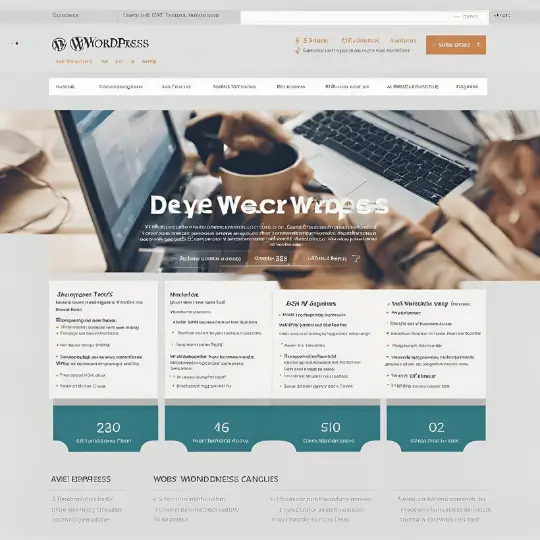Table of Contents
In an era of rapid technology innovation, staying current on upcoming tech trends is critical for both organizations and individuals. These changes not only transform industries, but also change how we live, work, and interact. From artificial intelligence to blockchain technology, the upcoming advancements present unprecedented prospects and problems.
The rate of technological development is accelerating at unprecedented levels. In recent years, we’ve seen major advances that have profoundly impacted a variety of industries, including healthcare, banking, and education. These achievements highlight the significance of adaptation in the face of ongoing change. Understanding and embracing future technology trends can mean the difference between prospering and surviving in a competitive landscape.
Individuals, too, must remain informed and adaptable. As technology permeates every aspect of our daily lives, the skills required to navigate this digital landscape are continually evolving. Embracing future tech trends not only enhances personal growth but also opens up new career opportunities and fosters innovation.
The significance of future tech trends lies in their potential to address complex problems and improve efficiency. For instance, advancements in artificial intelligence and machine learning are driving automation, which can streamline operations and reduce human error. Similarly, the rise of the Internet of Things (IoT) is connecting devices in ways that enhance data collection and analysis, leading to smarter decision-making processes.
This blog post aims to delve deeper into specific future tech trends, providing insights into their implications and potential impacts. By understanding these trends, readers can better prepare for the changes ahead and harness the power of technology to their advantage. As we explore these innovations, it becomes clear that staying informed and adaptable is not merely advantageous but essential in navigating the future technological landscape.
Artificial Intelligence and Machine Learning
Artificial Intelligence (AI) and Machine Learning (ML) are increasingly becoming integral to various industries, significantly impacting how businesses operate and interact with their customers. These technologies are being harnessed to automate processes, enhance decision-making, and deliver personalized experiences, thereby driving efficiency and innovation.
One of the primary applications of AI and ML is in automation. By automating repetitive and mundane tasks, organizations are able to allocate human resources to more strategic roles. For example, in manufacturing, AI-powered robots can handle assembly line tasks with precision and speed, reducing errors and increasing productivity. In the customer service domain, chatbots and virtual assistants leverage natural language processing to provide instant support, improving customer satisfaction and reducing operational costs.
Enhanced decision-making is another critical advantage of AI and ML. Predictive analytics, powered by ML algorithms, enables businesses to make data-driven decisions by identifying patterns and trends from large datasets. In finance, for instance, AI-driven models can predict market fluctuations, helping investors make informed choices. Similarly, in healthcare, ML algorithms analyze patient data to predict disease outbreaks and personalize treatment plans, leading to better patient outcomes.
Advancements in AI research, particularly in deep learning and neural networks, have expanded the capabilities of these technologies. Deep learning, a subset of ML, involves training neural networks with vast amounts of data to recognize complex patterns. This has led to breakthroughs in areas such as image and speech recognition, autonomous vehicles, and natural language understanding. These advancements are poised to revolutionize sectors like healthcare, where AI can assist in diagnosing diseases with high accuracy, and finance, where it can detect fraudulent activities in real-time.
Despite the promising potential of AI and ML, there are ethical considerations and challenges that need to be addressed. Issues such as data privacy, algorithmic bias, and the lack of transparency in AI decision-making processes pose significant risks. Ensuring that AI systems are developed and deployed responsibly, with robust ethical guidelines, is crucial to mitigate these challenges and build trust in AI technologies.
The Rise of Quantum Computing
Quantum computing represents a paradigm shift in technology, promising to tackle problems that are currently unsolvable by classical computers. At its core, quantum computing leverages the principles of quantum mechanics, particularly the concepts of qubits and quantum entanglement. Unlike classical bits, which exist in a state of 0 or 1, qubits can exist in multiple states simultaneously, thanks to superposition. This enables quantum computers to process a vast amount of information at unprecedented speeds.
Another fundamental principle is quantum entanglement, which allows qubits that are entangled to be instantaneously correlated regardless of the distance separating them. This phenomenon can be harnessed to perform computations much more efficiently than classical computers. These principles give quantum computing an edge in solving complex problems in various fields.
One of the most promising applications of quantum computing lies in cryptography. Quantum algorithms, such as Shor’s algorithm, have the potential to break widely-used encryption methods, thereby prompting the development of quantum-resistant cryptographic techniques. In drug discovery, quantum computing can simulate molecular interactions at a level of detail unattainable by classical methods, potentially leading to faster breakthroughs in medicine. Additionally, in material science, quantum computers can help design new materials with properties tailored for specific applications, driving innovation in industries ranging from electronics to renewable energy.
Despite its vast potential, the field of quantum computing is still in its infancy. Current research is primarily focused on overcoming significant technical challenges, such as qubit stability and error rates, which hinder the development of practical quantum computers. Companies and academic institutions worldwide are investing heavily in quantum research, aiming to bring about the next technological revolution.
As the landscape of future tech trends evolves, quantum computing stands out as a transformative force with the potential to redefine numerous industries. While significant hurdles remain, ongoing advancements continue to bring us closer to realizing the full potential of this groundbreaking technology.
Innovations in Connectivity and the Internet of Things (IoT)
Recent advancements in connectivity technologies, particularly the advent of 5G, are revolutionizing the landscape of the Internet of Things (IoT). As 5G networks become more widespread, they offer significantly higher data transfer speeds, reduced latency, and increased capacity compared to their predecessors. This enhanced connectivity is paving the way for a new era of smart devices and interconnected systems, fundamentally altering how we live and work.
One of the most notable impacts of advanced connectivity is seen in smart homes. With faster and more reliable networks, smart home devices can now communicate more efficiently, providing real-time responses and seamless integration. From smart thermostats and lighting systems to security cameras and home assistants, these devices are becoming more sophisticated, offering users greater control and convenience.
In the realm of industrial automation, enhanced connectivity is driving the adoption of IoT at an unprecedented rate. Factories and production lines are being outfitted with smart sensors and devices that collect and transmit data continuously. This real-time data enables predictive maintenance, optimizing operations, reducing downtime, and ultimately increasing productivity. The concept of the smart factory is no longer a distant dream but a tangible reality, thanks to the advancements in connectivity.
Healthcare is another domain significantly impacted by IoT. Wearable devices and remote monitoring systems are becoming integral parts of patient care. These devices track vital signs and other health metrics, allowing for continuous monitoring and timely interventions. Enhanced connectivity ensures that this critical data is transmitted quickly and reliably, improving patient outcomes and enabling more personalized care.
However, the proliferation of IoT devices also brings security and privacy concerns to the forefront. With billions of devices connected to the internet, the potential for cyberattacks and data breaches increases. It is crucial to implement robust security measures, including encryption, authentication protocols, and regular software updates, to safeguard against these risks. Privacy concerns must also be addressed by ensuring that data collection practices are transparent and that users have control over their personal information.
As we continue to embrace the future of tech trends, the advancements in connectivity and IoT will undoubtedly play a pivotal role in shaping a smarter, more connected world.


